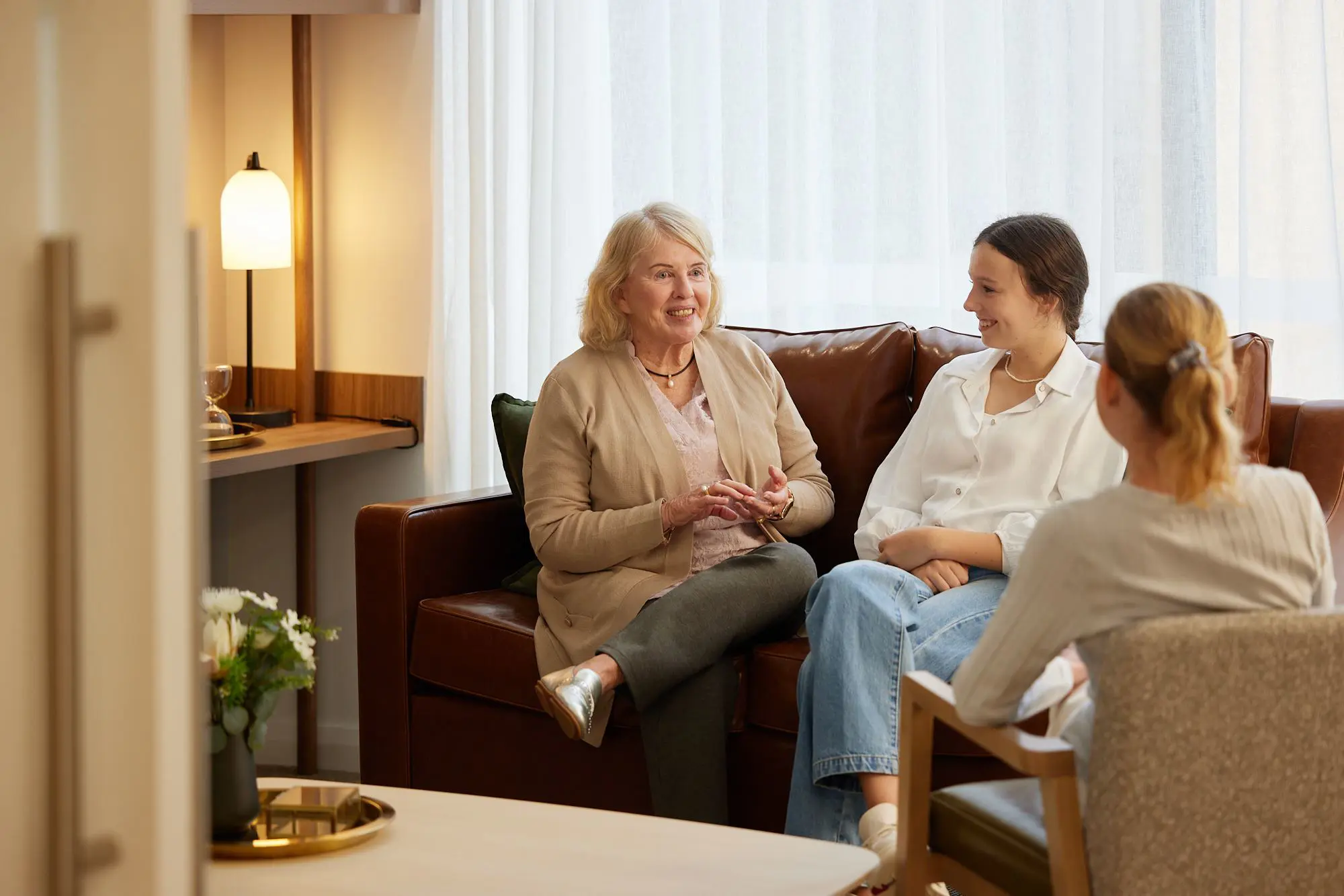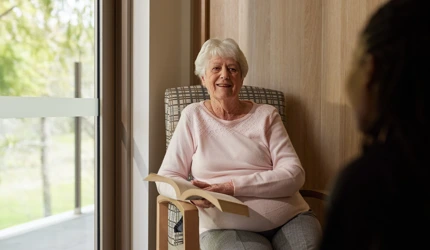
Every person has a unique life story, something many of us take for granted as we go about our daily business. While your own life story might not seem remarkable, chances are you only feel that way because it’s familiar to you. Writing a memoir is a wonderful way to reflect on a full life and a chance to let your family and friends in on some fantastic stories – and get to know you a bit better.
Brightwater volunteer Philippa Freegard understands the value of memoir writing more than most. The professional editor is spending time at Onslow Gardens, hosting workshops to help Brightwater residents record their life stories.
“I’ve always really enjoyed editing the genre of life writing,” Philippa said.
“I’m also interested in local history, so I decided to try running memoir workshops in an aged care setting.”
Philippa believes stories grounded in personal experience are core to what makes us human. Older people have more life experience, which makes running the memoir workshops so satisfying.
“The participants at Onslow Gardens are in their eighties and nineties,” Philippa said.
“All of them have childhoods that were directly or indirectly affected by the Second World War. Some grew up in Europe; others were raised in Australia – a very different Australia to that of today.
“My current group includes someone who used to be an acrobat, someone who was an Olympic sailing competitor, someone who loved to bushwalk for long periods in remote places and someone who has ridden all around Australia on a motorbike.”
Brightwater residents have lived through dramatic social and technological changes – more than any time in history – which makes for fascinating conversation.
“There are tales of escape, emigration, romance, joy and tragedy: everything you would expect from the full and eventful lives that residents have experienced,” Philippa said.

Remembering life stories is good for mental health
Research suggests memoir writing is more consequential than just a trip down memory lane. Recording autobiographical stories has been shown to produce increased satisfaction with life, and emotional wellbeing. What’s more, everyone attached to an older person can benefit from the results of a memoir-writing exercise, including family members, fellow residents and carers.
Benefits of memoir writing for older adults
- The process of writing and storytelling can help older people find meaning and gives them an opportunity to reflect on and make sense of life experiences.
- Documenting a resident’s life story validates that their experiences, and perspectives matter. It’s empowering to leave a tangible legacy and helps enhance self-esteem and a sense of accomplishment.
- The act of remembering details, organising thoughts, and telling stories engages the mind and may improve cognitive function.
- Reminiscing about life and sharing stories connects older adults to their identity and to others. It can be an enjoyable and uplifting experience for everyone.
- Memoirs help families understand their roots and older relatives on a deeper level. They are a priceless gift for families, especially younger generations, who hadn’t considered Pop or Gran led a life of adventure or intrigue.
The value of memoir writing is something Brightwater understands explicitly. Research Centre Clinical Trial Coordinator Rebecca Walton has been working on a study called EARLI, the Enhanced Advance care planning and life Review Longitudinal Intervention Project (funded by NHMRC grant in partnership with UNSW). One of the project’s goals is to help Australians aged 65 or over to begin reflecting more fully on their life. Rebecca believes this aids in advance care planning because it gives them a chance to consider what’s important to them and what’s driven decisions throughout their life.
Memoir writing promotes social connection
The residents at Onslow Gardens find the memoir workshops also provide social connection.
“I usually begin sessions with a prompt of some kind, but then we frequently go off-piste, depending on what people are in the mood to talk about,” Philippa said.
“Sometimes we debate something that’s in the news, or discuss something controversial, or swap funny stories.
“It’s just like a lively conversation with any other group of adults, but informed by memories from long ago.”
Anyone is welcome at the Onslow Gardens Memoir Workshop, even residents whose memories aren’t what they used to be.
“I do have a couple of participants who are dealing with memory issues or some kind of cognitive decline,” Philippa said.
“Often memories from further back are the ones that still flow freely and lucidly for them.
“And most humans love to chat; I don’t think that goes away as we age.”
Philippa hopes to compile a selection of the memoirs into a publication at some point, to provide residents, their families and others with a concrete record of these stories.
“It’s useful for everyone to try to preserve what our older generations have to say. These memories are a direct link to our heritage and our history.”



